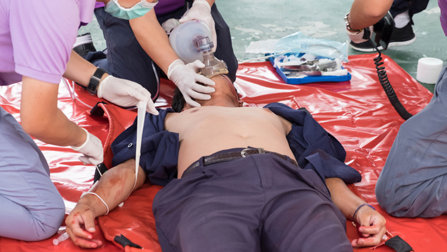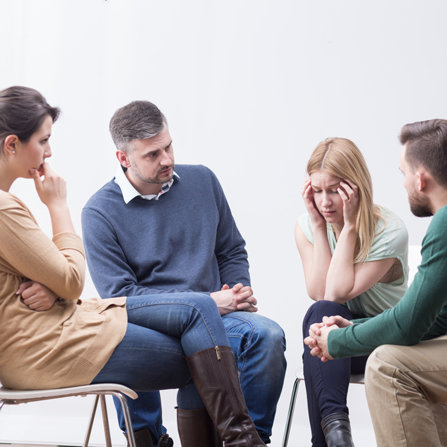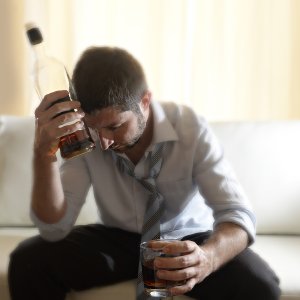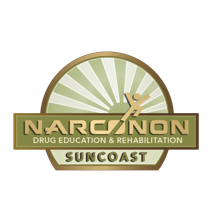3 Ways YOU Can Save a Life During the Opiate Crisis

With no end in sight to the opiate crisis in this country, we, as a society, need to be causative over the situation. We cannot lay back and expect our government, leaders, or physicians to solve the problem for us. Instead of being the victim of an out-of-control drug problem, we need to stand up to it, fight against it and do everything possible to protect ourselves and our loved ones from being negatively affected by the current state of affairs.
We might not be able to completely eradicate the problem ourselves and get all the heroin and pills off the streets, but what we CAN do is use all the tools available to us to start curbing the problem and reducing the amount of people succumbing to their addictions every day.
There are 3 ways anyone out there can help save the life of someone who is abusing opiates:
1. Get Educated
The first line of defense is getting educated. In order to help a person struggling with an opiate addiction, you need to educate yourself on all aspects of addiction. You need to be able to recognize the signs and symptoms of opiate abuse and also know what an overdose looks like. Know the warning signs of addiction and how to know if a loved one is addicted. Get educated on all the different forms of opiates; everything from “lean” to Percocet to heroin. The worst thing that can happen is a family member gets addicted and totally blindsides everyone who had no idea what was going on the whole time. All the crisis situations, unpaid bills, lost jobs and broken relationships never indicated there was a major substance abuse problem underneath it all. The family cannot afford to be reasonable. By being reasonable is meant that a family or loved one makes excuses for the addict such as;
“It’s just a phase…he’ll grow out of it.”
“She’s just experimenting…I did the same thing when I was her age.”
“He just needs a better job and some direction.”
Making excuses for the addict and being reasonable about their behavior does nothing to help them. If a family notices all the warning signs of addiction, they need to step in, intervene and get them help immediately. Allowing the addict to continue using will only result in their ultimate demise, forever scarring the family.
Any family, looking to defend themselves against addiction needs to get 100% educated on what to look for and then, more importantly, what to do to help an addict in the family.
2. Get Trained on Narcan

Unfortunately, we live in a world where carrying an opiate-reversing drug has become “normal.” Every day, addicts die from fatal opiate overdoses, causing heartache in the family and contempt for the drugs and the addict’s choices. Within the last year or two, many states in the U.S. have made it not only legal for the average person to carry Narcan, but Good Samaritan laws have been passed to protect the person administering the dose of Narcan to a person overdosing, without the risk of being held liable. In certain states, CVS and Walgreens pharmacies will provide some basic training on how to properly administer Narcan and what to do in case of an overdose. Gone are the days of the Pulp Fiction scene where Narcan is given via a giant syringe slammed into the person’s chest. Narcan comes in 2 main forms; either in an EpiPen style injector or as a nasal spray. Both are easy to use and it can be a life-saving measure for someone who has overdosed. Everyone and I repeat, everyone should get trained on how to use Narcan. You never know when someone you love may need it.
3. Understand Rehabilitation
Having an understanding of drug rehabilitation modalities is vitally important. There are 3 main types of treatment; outpatient, 30-day in-patient, and long-term, residential rehab. Everyone must understand the differences between these types of treatment in order to determine which is appropriate for the addict. Out-patient treatment consists of the addict living at home, working and continuing their normal routines. They attend a clinic 4-5 times a week and receive drugs tests, group counseling, are introduced to the 12 steps of Alcoholics Anonymous or Narcotics Anonymous and begin to go to meetings and work those steps. This is the lowest level of care an addict can receive and for many addicts, it is not as successful as the other types of treatment because they stay in the same environment they were using drugs in and may find it hard to stop getting high.

30-day in-patient drug rehabs are the next step up. These programs allow a change of environment and put the addict in a place where drugs are not readily available. However, for some addicts, 30 days of treatment is not enough. By the time the person finishes going through the acute detox, they have about 2 and a half weeks left for group and one-on-one counseling, go to some 12-step meetings and perhaps see a psychiatrist. On day 30, ready or not, they are out the door unless their insurance company coughs up more money for them to stay longer.
Finally, there is long-term, residential treatment. This type of treatment typically isn’t 12-step based and takes more of a behavioral approach to handling drug addiction. These programs don’t use medically-assisted treatment and put an addict on other drugs to replace the ones they were taking. Long-term, residential treatments work toward finding the root cause of an addiction and handling the reasons the addict turned to drugs in the first place. These programs commonly take 90+ days and will work with the addict until they are done, not gouge their insurance for more money and shoo them out the door. For most addicts, long-term residential treatment is the best option.
Taking a causative approach to handling an addict is the only way to combat the current opiate crisis. We can all step in a save a life. As long as we get educated, know how to use life-saving drugs and understand how rehabilitation can help someone thought lost to drug addiction, we can start to beat the opiate problem in this world. If we fail to do these things, we will all fall victim to what’s currently going on and nothing will ever get solved. It’s up to us to end the world’s drug problem once and for all and take a stand against drug addiction.


